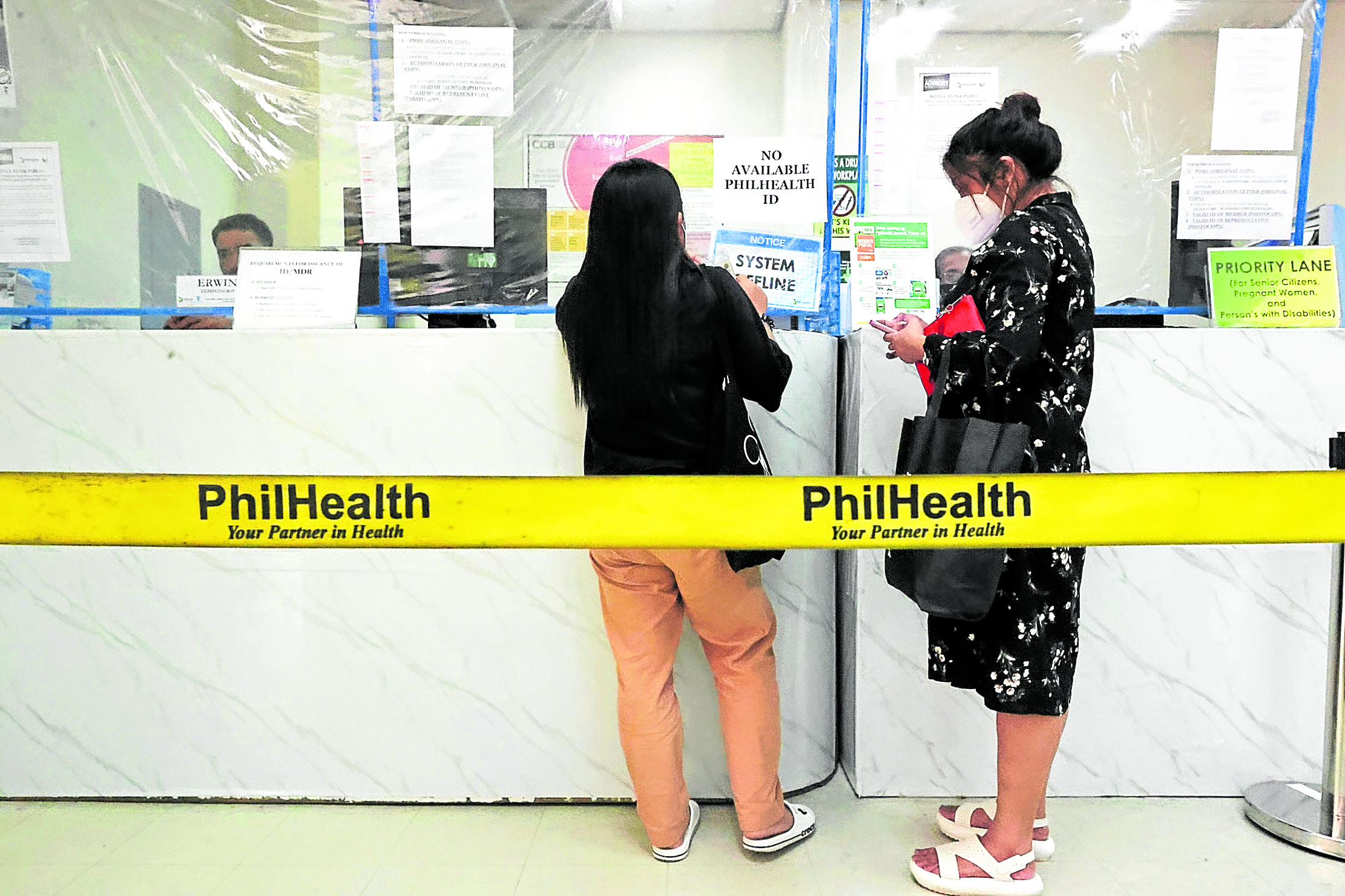MANILA, Philippines — The Philippine Health Insurance Corp. (PhilHealth) has cut case rates for “severe” and “critical” COVID-19 amid calls for the overfunded state health insurer to increase its benefits.
Retroactive to Nov. 1, PhilHealth began to cover only up to P590,000 in expenses for adults who contract critical COVID-19, a 25-percent decrease from the previous P786,384.
For children who get critical COVID-19, the new benefit package is P275,000—down by 65 percent from P786,384.
Severe COVID-19 benefit packages were also reduced: P250,000 for adult patients and P230,000 for pediatric patients (down by 25 percent and 31 percent, respectively, from the previous case rate of P33,519).
The case rate cut stemmed from PhilHealth Circular No. 2024-0026, signed by PhilHealth president Emmanuel Ledesma Jr. on Oct. 30, which listed separate benefit packages for adult and children COVID-19 patients.
The rate for moderate COVID-19 with pneumonia for pediatric patients also decreased from P143,267 to P92,500 (down by 35 percent).
Nevertheless, the new circular also increased the remaining COVID-19 rates.
For adults contracting moderate COVID-19 with pneumonia, it is now P157,000 (up 10 percent from P143,267), while adults who got infected with COVID-19 without pneumonia may get up to P55,000 (up 25 percent from P43,997).
For children who get mild COVID-19, the benefit package went up by 16 percent from P43,997 to P51,000.
In a message to the Inquirer, PhilHealth vice president for corporate affairs Rey Baleña said the benefit cuts were based on the minimum standards of care under guidelines established by the Department of Health (DOH) and the Philippine Society of Microbiology and Infectious Diseases.
New rules
Under the new rules, Baleña said COVID-19 patients admitted to basic rooms or ward accommodation in government hospitals shall not be charged more than their PhilHealth coverage under the no-balance billing policy.
“However, patients admitted to nonbasic accommodation may be charged a copayment or out-of-pocket payment for services beyond the essential health services,” he noted.
From April 2020, when the benefit packages for COVID-19 were first implemented, to June 2024, PhilHealth paid almost 7 million claims, amounting to more than P76.3 billion.
The state health insurer paid the most claims in 2023—when the Omicron variant of COVID-19 and its subvariants caused surges of cases in the country—amounting to P35.4 billion, or 14 percent of PhilHealth’s total claims payments.
In May 2023, the World Health Organization declared that COVID-19 was no longer a public health emergency of international concern, although health authorities clarified that the pandemic itself was not.
In June this year, the DOH reported a surge of COVID-19 cases in the country, which it attributed to the so-called “FLiRT” COVID-19 subvariants.
These are the JN.1.18, JN.1.7, KP.2, and KP.3—which are considered variants under monitoring and descendants of JN.1, an earlier detected subvariant of Omicron.
The DOH has stopped publishing cumulative COVID-19 data since January this year, with the country’s number of cases stuck at 4.1 million, with 66,864 Filipinos who died from the disease.
